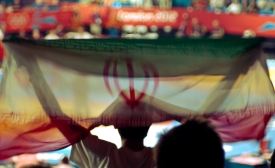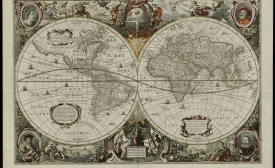iran
In her examination of cultural diplomacy, Von Maltzahn looks briefly at its relationship with ‘soft power’, with the Europeans developing structured programmes between the world wars, followed lately by China, but with few Arab countries taking the practice seriously, other than recently through satellite television channels. Compared to Iran, Syria has had little desire to propagate its culture abroad.
Saudi Arabia has severed diplomatic ties with Iran, as an escalating war of words between the two archrivals threatened to derail a renewed international bid to halt the conflict in Syria. [...] The United States is expected to repeat its appeal for restraint and calm when the State Department’s undersecretary for public diplomacy and public affairs, Richard Stengel, meets the Saudi undersecretary for international communication and media, Abdulmohsen Alyas, in Washington on Monday.

This new article discusses the interplay between power, politics and public diplomacy in Iran's use of soft power initiatives abroad.
In many ways, 2015 has been a transitional point for Iran and its relationship to the outside world. Iran and six world powers, including the US, inked a landmark nuclear deal this year; international sanctions against the Islamic Republic are set to ease; multinational corporations are descending on Tehran; and American and allied aircraft are coordinating with Iran-supported Shia militias in Iraq in the fight against the Islamic State.
The recent bill passed by Congress aims to clamp down on the visa waiver program with provisions that essentially discriminate against Iranians. The ACLU calls H.R.158, passed last Tuesday by overwhelming support (419 yes), as a measure calling for "blanket arbitrary discrimination based on nationality and national origin."
Saudi Arabia is taking a "soft power" jab at its regional rival Iran this week — a news website in Farsi, the language of Iran. It launches Thursday and the Saudi government expects to eventually start a Farsi-language TV channel as well. The step into soft power is new for the wealthy Kingdom, more known for opening its checkbook to gain influence.

Shaun Riordan's look at the state of geopolitics.
In November 1999, Nancy Matthews arrived at Tehran airport at 3 o’clock in the morning. Susan Koscis followed directly behind her. Koscis had made the trip a few years earlier through an NGO called Search for Common Ground, when she organised a visit of American wrestlers. Nancy was now planning to find and bring Iranian artists back to the United States for an exhibition. Koscis and Nancy were cultural diplomats.







